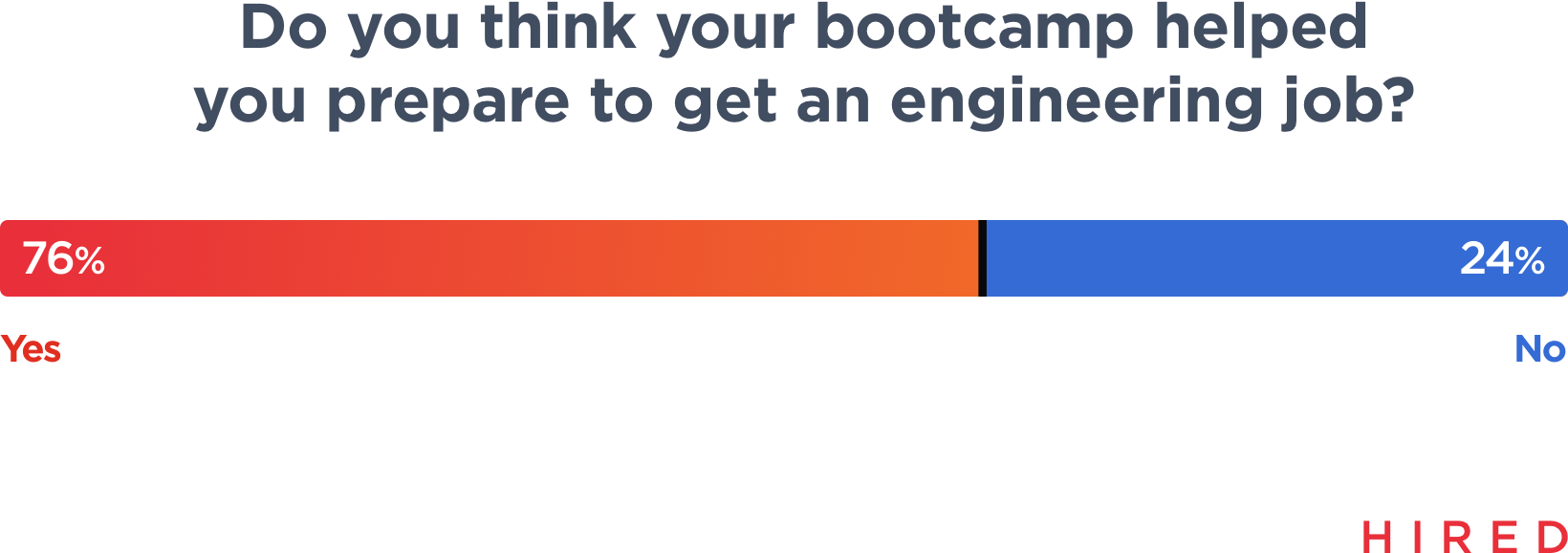
Developers Weigh In on Coding Bootcamps
Top technical talent can come from anywhere—from developers who never finished high school to those with multiple advanced degrees. For non-engineers hoping to make a career switch to software development, coding bootcamps are becoming increasingly popular. These bootcamps come with a pretty steep price tag (an average of $11,900 per student) but can kick start your technical education and help you find a job you’ll love.
And it’s no surprise that bootcamps have grown in popularity, with the number of students growing 9x since 2013. Software engineers have a global average salary of $135k and 24% employment growth expected by 2026 (compared to 7% for all occupations).
But perhaps the biggest consideration for those participating (or considering participating) in bootcamps is their job prospects after graduating—and whether the cost of the bootcamp justifies the price tag.
There are many lingering misconceptions about coding bootcamps and their participants so to dig deeper, we asked real software engineers and bootcamp participants to weigh in for our State of Software Engineers report.
Software engineers weigh inThough many recruitment teams at risk-averse companies still may be hesitant to hire bootcamp participants over traditional CS graduates, the developer community has a more accepting mentality. According to our data, 57% of software engineers claim they would hire a bootcamp grad for an open role. As for the remaining software engineers, only 7% indicated that they would not hire a bootcamp grad, leaving 36% undecided, which bodes well for bootcamp grads with strong interviewing skills who can prove their value to a potential developer team.
Unsurprisingly, the biggest concern about bootcamp participants for software engineers is lack of experience. To make up for this, candidates should consider pursuing projects outside of their bootcamp programs, building something on their own to showcase their skills as well as dedication to the career. In addition, finding and reaching out to developer teams who are willing to train up bootcamp grads may help in the search, rather than trying to pitch yourself to an unreceptive hiring manager.
What bootcamp grads sayRegardless of the broader developer community’s view of bootcamp grads, it’s also important to hear from real-life bootcamp participants who have gone through the job search process. According to our data, about three quarters of bootcamp participants report that it helped them prepare to get a software engineering job. The remaining quarter of grads feel that their program left something to be desired—so if you’re considering a bootcamp, you’ll want to find and talk to former participants for the inside scoop on the specific programs you’re looking at.

Before committing to a program, do your research into the curriculum and reputation, as well as job placement rates and average starting salaries for program grads. Typically, the better the bootcamp’s reputation, the higher your chances will be of getting the job you want, as more respected bootcamps will often have stronger connections to potential employers. That said, a motivated candidate might not need the bootcamp’s reputation to find their dream job, so it’s a matter of balancing your own dedication (and time you have to dedicate to a career switch), budget, and quality of the program.
At the end of the day, companies and the developer community have varying perceptions of coding bootcamps and attitudes towards hiring out of them—but the right bootcamp can be life changing for someone looking to break into software engineering and land a job they’ll love. For more insights from developers of all skill levels, geographies, and specialties, check out Hired’s State of Software Engineers report here.

